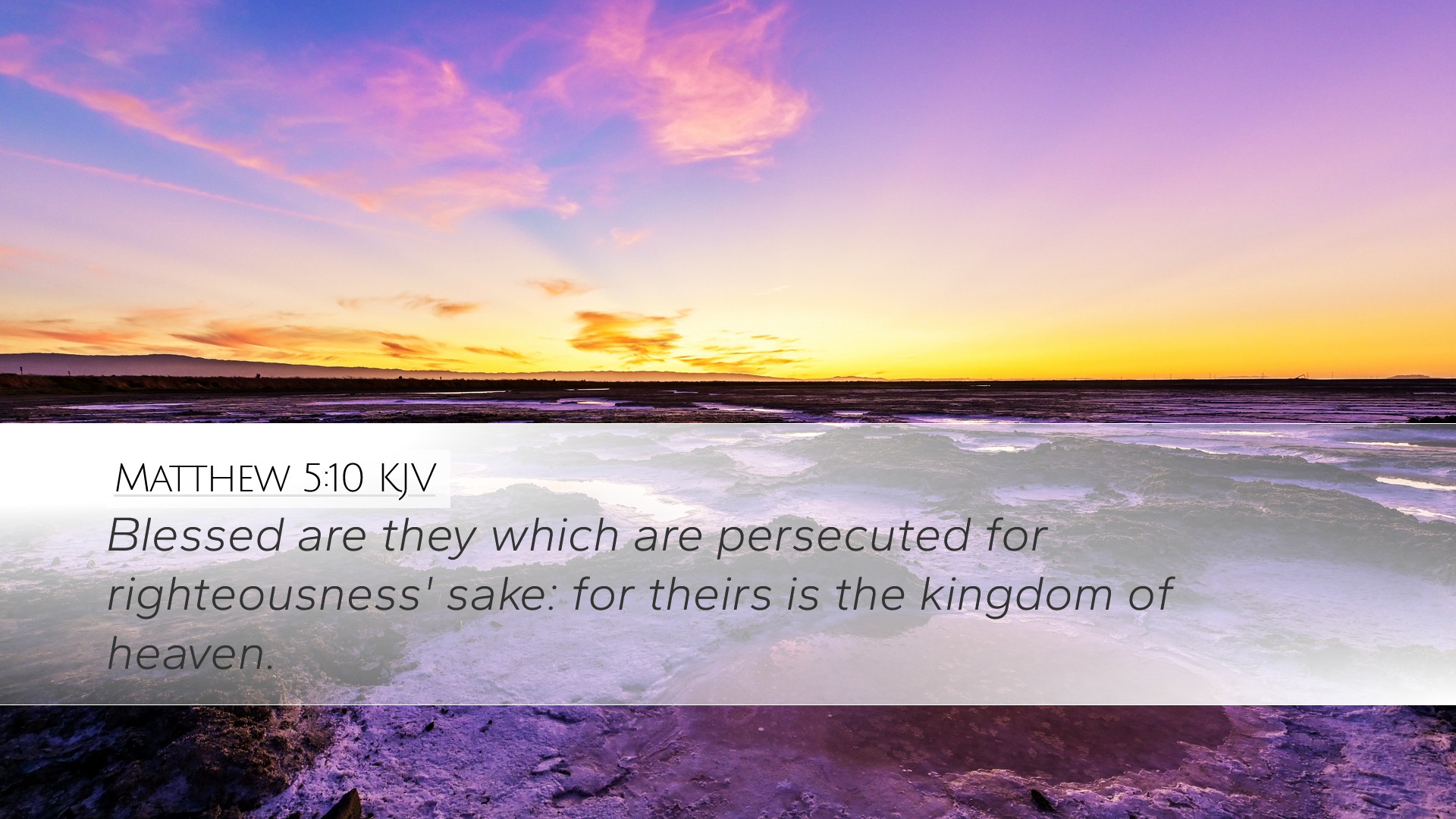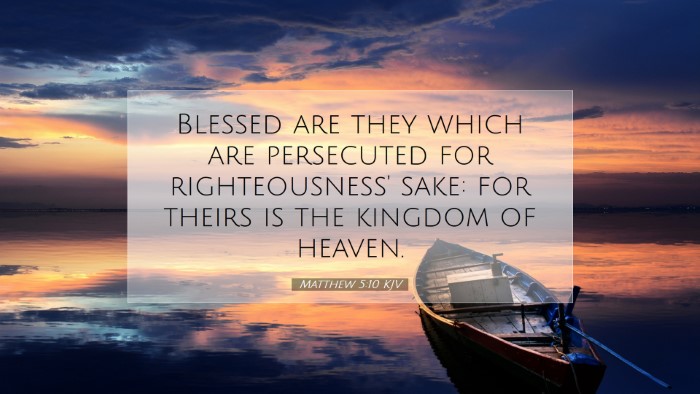Commentary on Matthew 5:10
Matthew 5:10 states: “Blessed are those who are persecuted for righteousness' sake, for theirs is the kingdom of heaven.” This verse is part of the Beatitudes, where Jesus outlines the characteristics and blessings of those who belong to the kingdom of heaven.
Understanding Persecution
Persecution is often misunderstood. It is not merely suffering or hardship; rather, it specifically refers to being mistreated because of one's faith and commitment to righteousness. Matthew Henry emphasizes that the context of this persecution is important. It is not persecution for one's own fault or wrongdoing, but for a sincere and earnest pursuit of righteousness as defined by God.
The Blessing of Being Persecuted
In this beatitude, Jesus promises a blessing for those who endure suffering for the sake of righteousness. Albert Barnes notes that the blessing comes not from the suffering itself, but from the righteousness that provokes such suffering. This indicates a divine recognition of their faithfulness amidst adversity.
Furthermore, Adam Clarke argues that this verse not only comforts the persecuted but also serves as a profound encouragement for believers to remain steadfast in their faith. The acknowledgment of the kingdom of heaven belonging to them reinforces the idea that earthly trials will be overshadowed by heavenly rewards.
The Kingdom of Heaven
The promise that “theirs is the kingdom of heaven” is a powerful declaration. Matthew Henry explains that the kingdom of heaven represents not only a future reality but also a present-state of being under God’s reign. This blessing assures believers that their struggles are seen and honored by God.
- Present Assurance: The kingdom is a current reality for believers who face persecution, validating their ongoing struggles.
- Future Hope: Beyond present assurance, there lies the hope of ultimate reward and vindication in the eternal kingdom.
Righteousness and Its Implications
Righteousness here refers to a life that aligns itself with God’s will, which is contrary to the standards of the world. Albert Barnes highlights that true righteousness can bring about societal hostility, suggesting that believers should be prepared for opposition when they live out their faith authentically.
Clarke adds that such righteousness acts as a witness to the world, provoking response; hence, persecution can be viewed as validation of one’s faith and a tool that can lead to greater fervor in faith communities.
Historical and Cultural Context
Understanding the historical context in which Jesus spoke these words is crucial. Early Christians faced significant persecution within the Roman Empire, as described by Matthew Henry. This suffering was not trivial; it was often brutal and resulted in martyrdom.
As such, this blessing serves as both an encouragement and a rallying cry for believers to steadfastly uphold their faith in the midst of trials. It emphasizes that their struggles against a corrupt world are honorable and that God is with them.
Practical Applications
Pastors and church leaders can derive several crucial lessons from Matthew 5:10:
- Embrace Righteousness: Encourage congregations to seek genuine righteousness despite societal pressures to conform.
- Prepare for Persecution: Teach that suffering for one's faith is expected and a sign of a true commitment to following Christ.
- Provide Comfort: Offer encouragement to those experiencing persecution, reminding them of their blessed status and the promise of the kingdom.
Conclusion
The message of Matthew 5:10 is timeless and universal. It calls for a deep commitment to righteousness and an acceptance of the suffering that may accompany that choice. As believers navigate their faith in a world often hostile to divine standards, the assurance found in this beatitude remains a source of hope and strength.
In a society where ethical and moral standards seem increasingly compromised, the call to live righteously is as relevant today as it was in Christ’s time. Pastors and theologians alike must heed this call, equipping believers to face trials with the knowledge that they are indeed “blessed” and under God’s gracious kingdom.


